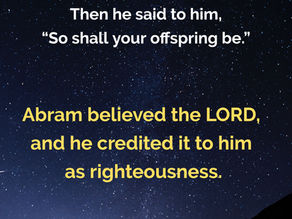Acts 5:27-32 - Just The Good 'Ol Boys
- Chad Werkhoven
- Sep 1, 2025
- 4 min read
True rebels are those who've been brought to repentance by Christ.

Acts 5:27–32
CONTEXT: This week we'll be working through selections from the book of Acts looking at examples of how God's grace is stronger than we are, and how it is that He produces both our will to believe and our very faith itself.
Here in Acts 5, the early Church is experiencing persecution from the Sadducees, the majority political/religious party in Jerusalem.
27 The apostles were brought in and made to appear before the Sanhedrin to be questioned by the high priest. 28 “We gave you strict orders not to teach in this name,” he said. “Yet you have filled Jerusalem with your teaching and are determined to make us guilty of this man’s blood.”
29 Peter and the other apostles replied: “We must obey God rather than man! 30 The God of our fathers raised Jesus from the dead—whom you killed by hanging him on a cross. 31 God exalted him to his own right hand as Prince and Savior that he might bring Israel to repentance and forgive their sins. 32 We are witnesses of these things, and so is the Holy Spirit, whom God has given to those who obey him.”
Canons of Dordt
Point 4 - Irresistible Grace
Article 13 & 14: The Incomprehensible Way of Regeneration and the Way God Gives Faith
In this life believers cannot fully understand the way this regeneration occurs;
meanwhile, they rest content with knowing and experiencing that,
by this grace of God,
they do believe with the heart and love their Savior.
In this way, therefore, faith is a gift of God,
not in the sense that it is offered by God for people to choose,
but that it is in actual fact bestowed on them,
breathed and infused into them.
Nor is it a gift in the sense that God bestows only the potential to believe, but then awaits assent—the act of believing—by human choice;
rather, it is a gift in the sense that God who works both willing and acting
and, indeed, works all things in all people and produces in them both the will to believe and the belief itself.
Summary
We love stories like this: establishment goons trying to crack down on a scrappy group of the faithful, who by God's grace are able to thumb their noses back at them as they stand for what's right and good. It's why we love figures in history like Martin Luther (both the Reformer in the 16th century and his namesake in the 20th century) and like the Duke boys as they evaded Boss Hogg and Roscoe P. Coltrane.
That's the picture that we have here of our favorite disciple turned apostle, Peter. As the Law bears down on him, reiterating their earlier strict orders not to teach in this name
(notice how they can't even bring themselves to say the name of Jesus), Peter and the other apostles stand there, calm, cool & collected, and reply with that line we love: We must obey God rather than man. Boom... mic drop moment. If this were a movie, the crowd would cheer and carry Peter out on their shoulders.
But Peter wasn't done. You see, neither Peter (nor Luther 1,500 years later as he defied the Pope's emissary in Worms) were the mavericks we like to romanticize them as. They weren't rebels without a cause, or primarily champions for the rights of the downtrodden whose work was finished once they stuck it to the man.
No, Peter and those who follow in his steps are merely witnesses of the God of our Fathers who raised Jesus from the dead and exalted Him to His own right hand as Prince and Savior. Peter here wasn't rebelling against authority; He was submitting himself to a much higher authority.
Dig Deeper
It's interesting the way Peter frames it here as he replies to the Sanhedrin. He doesn't say that God exalted Jesus... as Prince and Savior that He might bring Israel salvation, or even grace. No, Peter here indicates in this particular situation that God exalted Jesus... that He might bring Israel to repentance and forgive their sins.
So many people get confused about this. They might know that salvation and grace are offered by Jesus, but yet think that in order to gain those things, they must first bring themselves to repentance. It's as if only those who can muster the wherewithal to ask for Jesus to forgive their sins will get His grace and the blessing of the Holy Spirit, whom God has given to those who obey Him.
The Canons here harmonize all of scripture as they unpack the truth that Peter scolds the Sanhedrin with: the very faith we need to repent and obey God is breathed and infused into us... God works all things in all people and produces in them both the will to believe and the belief itself. This is the very essence of Reformed theology.
This means that if you see the evidence of this God given faith in your life, you have the same strength in you that Peter did to stand against anything and everything that seeks to deter you from obeying the very One who brought you to repentance and forgiveness.
ACKNOWLEDGE WHO GOD IS: Our Father, who exalted Christ to His own right hand as Prince and Savior;
ALIGN YOUR LIFE WITH GOD'S WILL: Pray that you would stand firm in your faith just as Peter and the apostles did;
ASK GOD FOR WHAT YOU NEED:
Read the New Testament in a year! Today: 2 Corinthians 7



















Comments